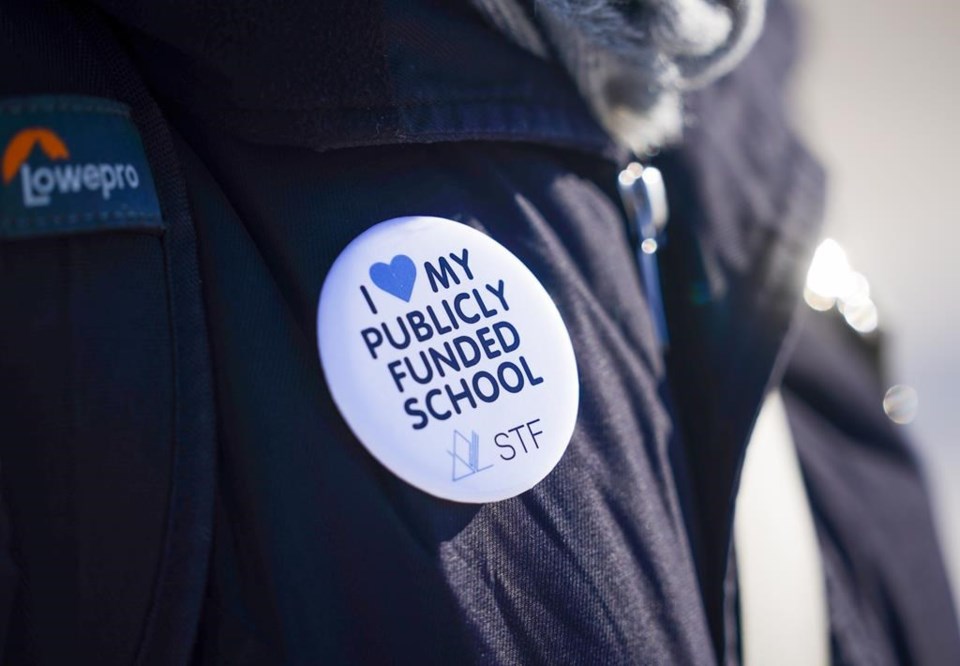REGINA — Saskatchewan teachers are returning to the bargaining table and ending job action that had threatened to upend extracurricular activities, including graduation ceremonies.
The Saskatchewan Teachers' Federation announced Friday it would resume talks next week for a new contract, because it has assurances the province would address issues of classroom sizes and other supports in negotiations.
The talks are scheduled to start Tuesday.
Teachers had been refusing, in fits and starts for months, to perform certain extracurricular duties, such as lunchroom supervision and volunteering for after-school events, to push the province to negotiate.
In March, job action caused a provincial basketball tournament known as Hoopla to be cancelled. The last two days of the Optimist Band Festival in Regina were also spiked.
The province blamed the federation for Hoopla's demise, while teachers said the government could have saved it.
Teachers ramped up that job action this week, announcing all extracurricular duties, including helping with graduation ceremonies, would cease indefinitely.
Federation president Samantha Becotte said teachers won't impose sanctions during negotiations.
"Any time we have job action, we know it creates a disruption in the lives of students and their families, and it definitely disrupts the lives of teachers," she told reporters.
"It helps to put additional pressure on the employer any time there is job action. I'm happy to say we're at a place that's really good right now."
The two sides are at odds over whether classroom sizes and supports should be done within or outside of collective bargaining.
Teachers have been asking the province to increase funding to help students who struggle with their mental health or behaviour, including those who are violent in classrooms.
The union also says extra supports are needed for students with speech-language or other learning issues
The province promised increased funding and teacher input to those issues outside of bargaining, but teachers say those promises need to be in writing in the contract to ensure the government follows through.
Becotte asked the province last week to include a line in the contract that would ensure the province honours its commitments.
She declined to say if such a line would be in the collective agreement, as both sides are working out the language.
"With back and forth conversations, anything I share with you right now might change in the future, and I would hate it to derail the positive path we're on," Becotte said.
"I'm looking forward to the day where we have a tentative agreement, and I'm able to share a little bit more of those details."
Premier Scott Moe said in a video message on X, formerly known as Twitter, that it's reasonable for school boards to keep their decision-making rights.
He also said it's reasonable for the union to want the government to honour its commitments within the contract.
"And our government is prepared to see this language included in the contract," he said.
"I'm very hopeful that it will form the very basis for bargaining a new agreement that works for all sides and ensures our kids receive the best possible education."
In a statement, Education Minister Jeremy Cockrill said he's optimistic about an agreement will be reached.
The last contract expired in August 2023.
This report by The Canadian Press was first published April 12, 2024.
Jeremy Simes, The Canadian Press



